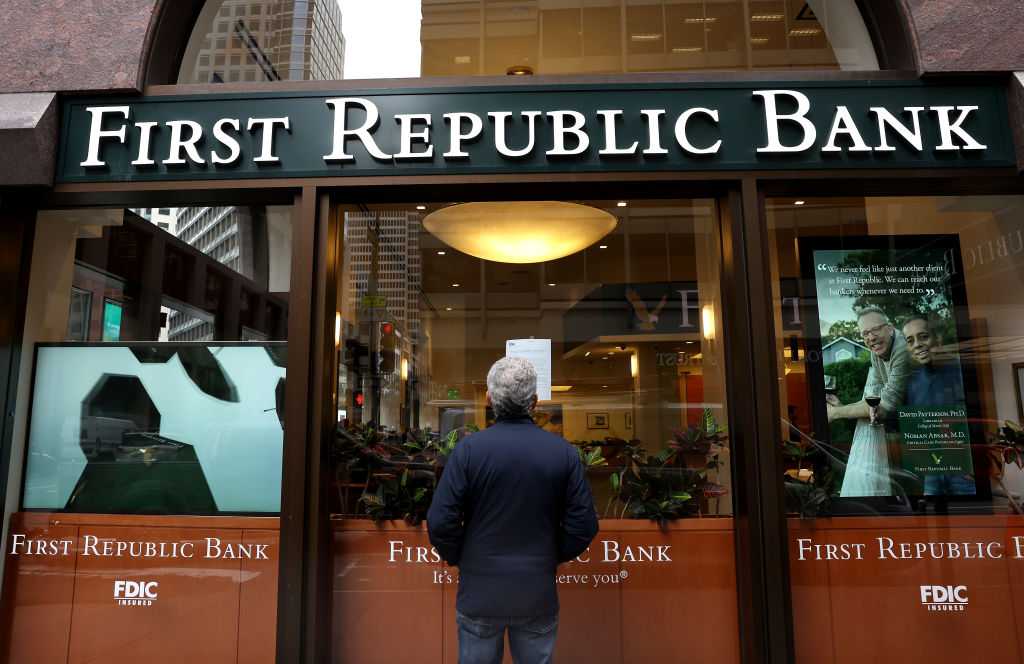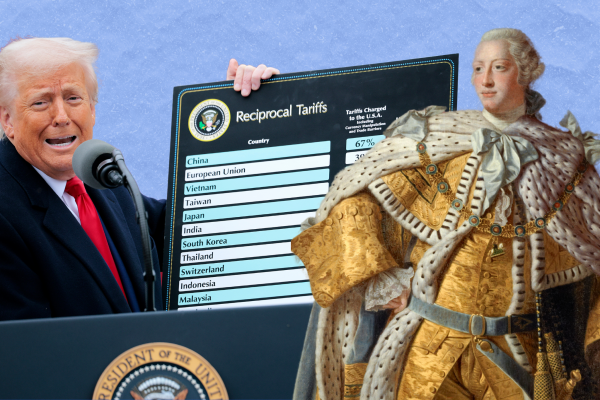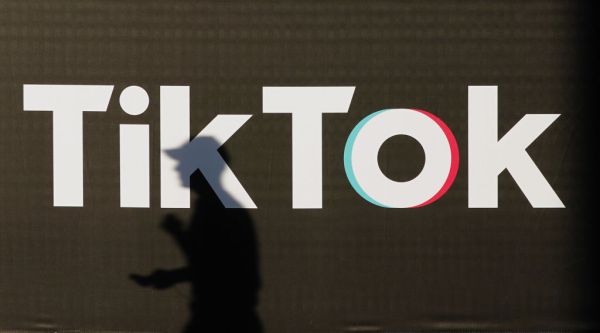Happy Tuesday! Hollywood writers launched their first strike in 15 years last night, presumably frustrated that The Super Mario Bros. Movie recently became the highest-grossing film of the year.
Quick Hits: Today’s Top Stories
- Treasury Secretary Janet Yellen said Monday the U.S. could run out of money to pay its debts as early as June 1 if Congress does not raise or suspend the debt limit. In response, President Joe Biden invited the leaders of both houses of Congress—including House Speaker Kevin McCarthy—to the White House on May 9 for negotiations over raising the debt ceiling, which McCarthy and his GOP colleagues want to link to spending cuts. House Republicans narrowly passed a bill to that effect last week, but it will not be taken up by the Democratic-controlled Senate.
- The Supreme Court agreed on Monday to hear a case that could overturn the so-called Chevron doctrine, which instructs the courts to defer to federal agencies when interpreting ambiguous federal statutes. The case—Loper Bright Enterprises v. Raimondo—challenges the National Marine Fisheries Service’s insistence that herring fishing companies are responsible for paying a federally mandated monitor’s salary; the plaintiff argues the federal statute does not specify who must pay the salary of the monitor. Justice Ketanji Brown Jackson—who heard the case when she sat on the D.C. Circuit Court—recused herself.
- Turkish President Recep Tayyip Erdoğan claimed Sunday Turkish intelligence services had killed the leader of ISIS, Abu al-Hussein al-Husseini al-Qurashi, in a region of northern Syria controlled by Turkey-backed rebels and hit hard by a February earthquake. The announcement comes as Erdoğan promises to continue fighting terrorism ahead of a presidential election in Turkey on May 14.
- The Florida board governing Disney World’s new Central Florida Tourism Oversight District voted Monday to counter-sue Disney in state court. Disney filed a federal lawsuit against the board and Florida Republican Gov. Ron DeSantis last week, alleging they infringed upon the entertainment giant’s free speech rights by retaliating after it criticized a Florida law limiting discussion of sexuality and gender identity in K-3 classrooms.
- Democratic Sen. Ben Cardin of Maryland, 79, announced Monday he will not seek reelection in 2024, opening a safe blue Senate seat up to Democratic hopefuls. Prince George County Executive Angela Alsobrooks and Rep. David Trone, both Democrats, have been hiring campaign staff ahead of the announcement and are likely to seek the seat. Democratic Rep. Jamie Raskin of Maryland—who announced last week his cancer is in remission—may be another candidate. Meanwhile, Democratic Washington Gov. Jay Inslee said Monday he will not run for a fourth term.
First Republic’s Last Days

On an investor call last November, Jim Herbert was exuding confidence. “Clients stay with us,” the founder of First Republic Bank said. “They grow, they compound, their deposits compound, their loans compound, and they bring their friends. It’s not a complicated model, and it works in all environments.” Six months later, First Republic Bank is no more.
After the San Francisco-based bank imploded last week, financial regulators spent the weekend scrambling to place it in receivership and arrange for a sale to another institution. On Monday, First Republic customers woke up to discover they were now JPMorgan Chase customers. Industry analysts hope First Republic’s failure—the second-largest in U.S. history—represents the end of the volatility triggered by Silicon Valley Bank (SVB) and Signature Bank’s stunning collapses in March, but questions remain about the stability of the financial sector.
After a bidding process that closed on Sunday, JPMorgan Chase—already the largest bank in the country—agreed to assume all of First Republic’s $92 billion in deposits and most of its $200-plus billion in assets. The bank said it will receive $50 billion in financing from the Federal Deposit Insurance Corporation (FDIC) over the next five years, and it’ll assume some of First Republic’s losses while the FDIC takes on an estimated $13 billion. “Our government invited us and others to step up, and we did,” Jamie Dimon—CEO and chairman of JPMorgan Chase—said in a statement. “Our financial strength, capabilities and business model allowed us to develop a bid to execute the transaction in a way to minimize costs to the Deposit Insurance Fund.” Several other banks—including PNC Financial Services and Citizens Financial Group—submitted bids to the FDIC over the weekend, but JPMorgan was reportedly the only institution prepared to purchase the entire bank, enabling a quick and clean sale.
So, what brought First Republic down? Like SVB, a majority of First Republic’s deposits—67 percent in December 2022—were above the FDIC’s cap of $250,000, making the bank particularly vulnerable to a run. Its balance sheet also suffered as the Federal Reserve hiked interest rates at a historic pace over the past year, but not entirely for the same reason as SVB. While SVB’s failure was largely attributed to its heavy investment in long-maturity U.S. Treasury bonds that lost their value in a high-interest-rate environment, First Republic’s was due largely to all the cheap loans it doled out in an effort to attract uber-wealthy customers and eventually sell them on more profitable products like wealth management. According to an annual report, First Republic was sitting on about $19 billion in unrealized mortgage losses at the beginning of 2023 and $4.8 billion in unrealized bond losses.
Unlike SVB and Signature, First Republic initially appeared able to weather the storm. The bank received a $30 billion cash infusion after the March run on deposits, with 11 large banks—including JPMorgan—coming together to stabilize their competitor. But First Republic’s stock price continued to tumble, and it began looking for a buyer. When the lender released its quarterly earnings report last week, it was clear the March instability was on its way to claiming another victim. According to the report, the bank had lost $102 billion in customer deposits—more than half of the $176 billion it held in December. The lender announced a last-ditch plan to cut a quarter of its staff, reduce executive pay, and dump some corporate office space, but it was too late. First Republic’s stock was trading below $4 on Friday, down from $120 at the beginning of March.
Steven Kelly, a senior research associate at Yale’s Program on Financial Stability, described First Republic’s failure as “the last major domino from the initial panic”—and Dimon agreed. “This part of the crisis is over,” he said on an analyst call yesterday. “Everyone should just take a deep breath.”
But other observers believe many banks remain at risk—particularly if the Federal Reserve goes ahead with another expected rate hike. “As long as monetary policy is continuing in that direction of increasing rates, and as long as we have all these banks that gave loans in the low rate period, then those banks are exposed, and they might see some risks of failure,” Itay Goldstein, an economics professor at the University of Pennsylvania who studies financial crises, told TMD. “It can happen very quickly like with SVB, but it can also take more time like we saw with First Republic,” he added. “We know from the history of banking failures, sometimes it’s not a swift bank run, but it’s more of what used to be called a bank walk where depositors are slowly taking their money out of the bank.”
And the three large bank failures we have seen so far are nothing to sneeze at. SVB, Signature, and First Republic’s combined assets exceeded the total assets of the 25 banks that failed in 2008, including the single largest bank failure in American history—Washington Mutual Bank. (First Republic, SVB, and Signature hold the second-, third-, and fourth-place titles.)
One significant consequence of the banking volatility of recent months is that the biggest banks have grown even bigger. Quarterly earnings reports show that three of the four largest banks maintained strong profits as customers moved their money to institutions they see as more stable. “Going forward, I think it’s going to be towards more consolidation and we’re going to see the bigger banks getting stronger at the expense of midsize and small banks,” Goldstein told TMD.
Some progressive lawmakers are pushing for banking reform in light of the recent failures. “The failure of First Republic Bank shows how deregulation has made the too big to fail problem even worse,” said Sen. Elizabeth Warren. “Congress needs to make major reforms to fix a broken banking system.” Sen. Sherrod Brown of Ohio, chair of the Senate Banking Committee, also called for policy changes: “We must make large banks more resilient against failure so that we protect financial stability and ensure competition in the long run.”
But at least in the current system, tolerating bigger banks may be the price of entry for financial stability. “The smaller regional banks, less diversified banks have proved more unstable,” Kelly told TMD. “It would be a shame if Congress’ takeaway from this crisis is [that] we need to regulate the big banks more. Because it’s the big bank business model that has proved stable.”
Since March, banking authorities have been examining their own role in the crisis. The Fed released a report last week that included a partial mea culpa on its own role in the collapse of SVB. “Federal Reserve supervisors failed to take forceful enough action,” the report states, citing the decreased scrutiny banks like SVB face after regulatory changes adopted in 2019. The FDIC released a report yesterday recommending a targeted expansion to deposit insurance for certain types of business accounts used for payroll—a move that would attempt to reduce the potential fallout of a run while also avoiding the potential moral hazard of expanding insurance more broadly.
“The March 12 rescue of SVB and Signature’s uninsured depositors was an admission that 15 years of reform efforts have not been a success,” said Jonathan McKernan, a member of the FDIC’s board of directors. “More work remains to be done.”
Worth Your Time
- Independent Sen. Kyrsten Sinema of Arizona “feels misunderstood, and she would like to explain herself,” McKay Coppins reports in an Atlantic profile of the one-time Democrat, who gave him a rare sit-down interview. “Sinema tells me that there are several popular narratives about her in the media, all of them ‘inaccurate,’” Coppins writes. “One is that she’s ‘mysterious,’ ‘mercurial,’ ‘an enigma’—that she makes her decisions on unknowable whims. She regards this portrayal as ‘fairly absurd.’” Instead, she says, she’s a pragmatist who gets things done in the Senate. “She’s proud that she outgrew the activism of her youth. It was, in her own assessment, ‘a spectacular failure. You can make a poster and stand out on the street, but at the end of the day all you have is a sunburn. You didn’t move the needle. You didn’t make a difference.’ Sinema contends the activists who spend their time noisily berating her in person and online aren’t doing much for the causes they purport to care about. ‘I am much happier showing a two-year record of incredible achievements that are literally making a difference in people’s lives than sharing my thoughts on Twitter.’”
- Baseball’s new pitch clock isn’t just making games shorter, it’s making them more uniform in length, too. “April 25’s 15 contests included close games and lopsided games, shutouts and slugfests,” Ben Lindbergh writes for The Ringer. “But there weren’t any extra-long games that were balanced out by a bunch of extra-short ones. Only 36 minutes separated the longest game (2:52) from the shortest game (2:16). The last time the standard deviation of game length was this low was 1942, when wartime curfews were in effect, the cork and rubber used in baseballs were in short supply, and offense plummeted to levels not seen since the dead-ball era. Networks prefer programming that stays within prescribed time slots, not programming that defeats time and, in turn, screws up the rest of the schedule. If MLB wants to own the next generation and make baseball more of a national game, the league is probably better off with a product that’s not only faster than before, but also more easily planned around. And in this season, more than in any other that today’s fans can recall, baseball games are really running like clockwork.”
Presented Without Comment
Washington Free Beacon: In Court, Hunter Biden Cries Poor to Reduce Child Support Payments
“Hunter Biden’s lawyers painted him as financially strapped in his first appearance in an Arkansas court on Monday, as he sought to get his child support payments to his former mistress and their four-year-old daughter reduced. The president’s son, who made millions of dollars off deals and cushy board positions for foreign companies in the past decade, now has no salary, had his Porsche repossessed, and was forced to sleep on a cot in his father’s room during a recent presidential trip to Dublin, Biden’s lawyers told the court.”
Also Presented Without Comment
CNN: NYC to Give Out 500 Apple AirTags for Residents to Put in Their Cars to Combat Car Theft
“Some Kia, Hyundai and Honda models are getting stolen in New York City so often that the Mayor is giving out Apple AirTags to help residents track their vehicles. The city plans to distribute 500 AirTags to residents to place in their cars to combat car thefts in target neighborhoods.”
Toeing the Company Line
- In the newsletters: Kevin compares (🔒) Ron (DeSantis) to Ron (Reagan), the Dispatch Politics team breaks down the political dynamics of DeSantis’ feud with Disney, and Nick concedes (🔒) Republican lawmakers have no self-interested reason to endorse the Florida governor right now.
- On the podcasts: Sarah and David examine the Supreme Court’s decision to take up a case that could kill the Chevron precedent.
- On the site today: Alec reports on why so many businesses are leaving Portland, Oregon, James C. Capretta argues the spending bill House Republicans passed last week isn’t all it appears to be, and Ross Anderson reviews journalist Ben Smith’s new book Traffic: Genius, Rivalry, and Delusion in the Billion-Dollar Race to Go Viral.
Let Us Know
Have recent bank failures changed your perception of the banking industry? Do you know more about your own bank’s portfolio?








Please note that we at The Dispatch hold ourselves, our work, and our commenters to a higher standard than other places on the internet. We welcome comments that foster genuine debate or discussion—including comments critical of us or our work—but responses that include ad hominem attacks on fellow Dispatch members or are intended to stoke fear and anger may be moderated.
With your membership, you only have the ability to comment on The Morning Dispatch articles. Consider upgrading to join the conversation everywhere.